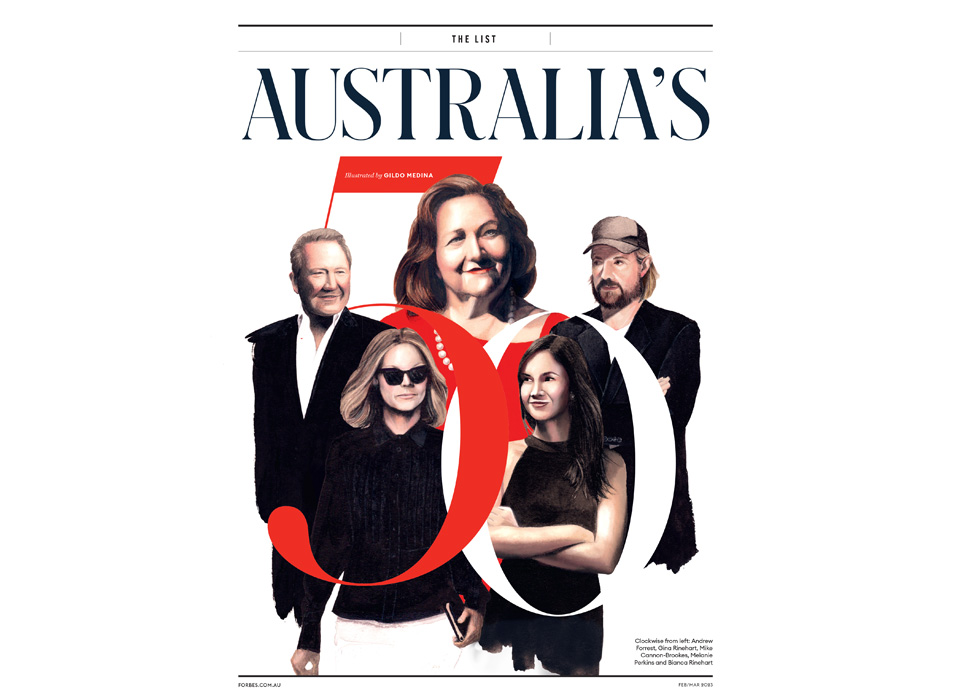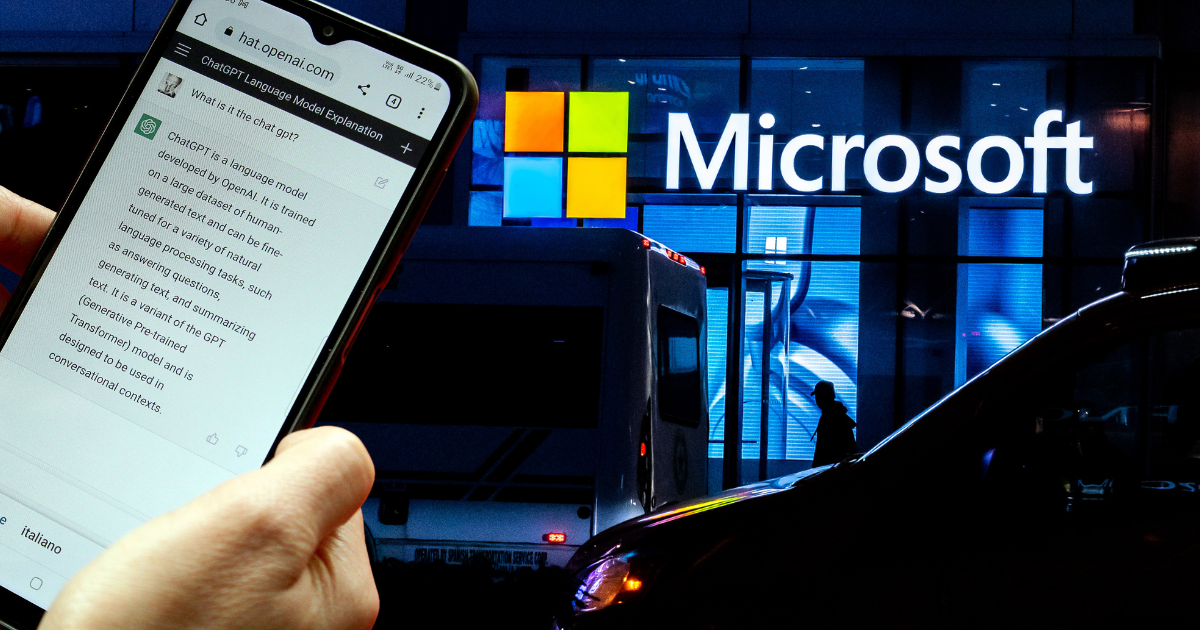What’s it really like going up against two trillion-dollar companies?
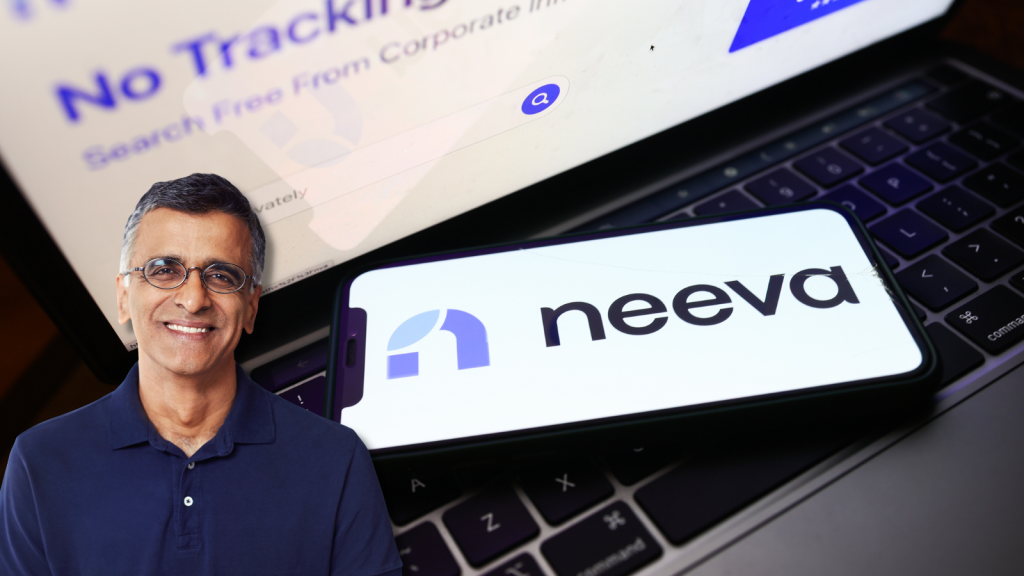
AUSTRALIA’S 50 RICHEST is out. You can see the full list here.
With just 50 team members, Neeva co-founder Sridhar Ramaswamy says going up against AI incumbents Microsoft (US$1.95 trillion) and Google (US$1.22 trillion) can feel like you’re standing in the path of an 18-wheeler coming at full-speed. But he’s confident that by remaining consumer-focused, Neeva can be the generative AI search engine to rule them all.
Ramaswamy, who used to head up Google’s US$115 billion advertising business, launched Neeva in 2019 as an ad-free, “bias-free”, subscription search engine.
“Google was trapped in a business model that forced it show more and more ads, which prevent real innovation on the organic search side,” Ramaswamy tells Forbes Australia.
But launched this week in Australia and across the globe, NeevaAI is its new iteration – a generative artificial intelligence search engine, not unlike Microsoft’s new AI-powered Bing search engine and Edge browser. The difference is, NeevaAI has carried (first) its ad-free ethos with it and (second) it provides citations and links to the resources it’s pulled the information from. In cases where it can’t answer questions, it may not give an answer at all (but this could change soon, Ramaswamy says).
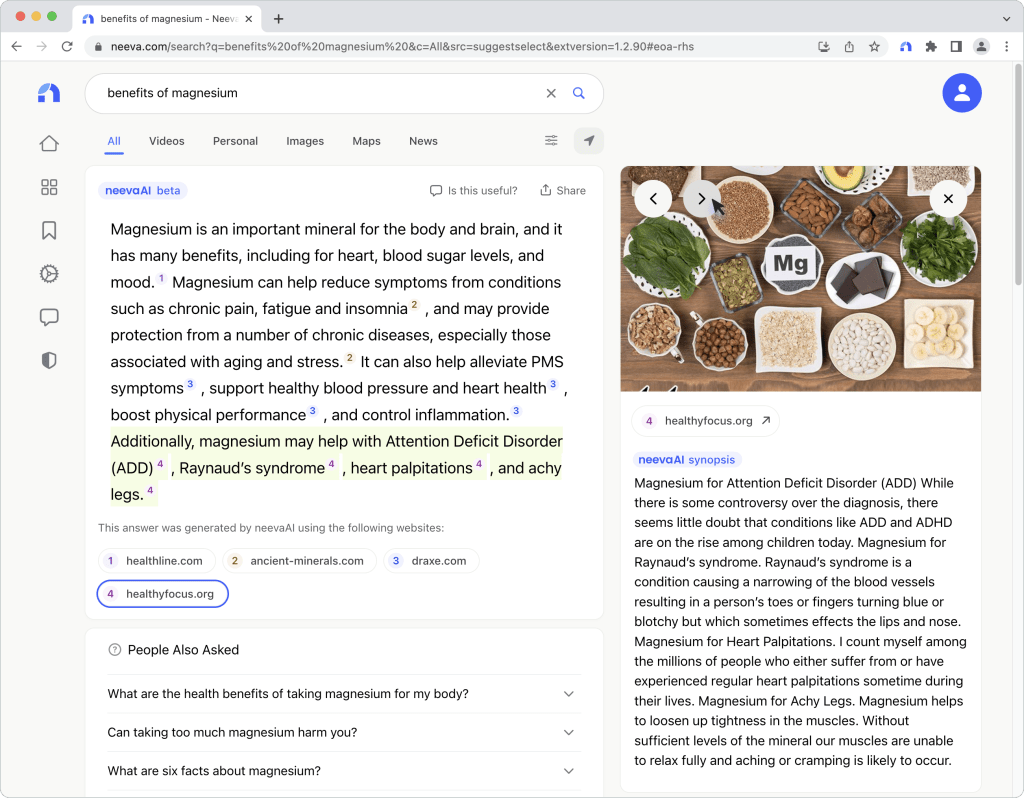
“It’s not really in the business of creating a fictional kind of world, which to a certain extent ChatGPT is when it comes to things that it doesn’t know [because] it makes things up,” he says.
ChatGPT is the free (for now) generative AI site created by San Francisco-based AI and research company, OpenAI. It took the internet by storm when it launched late in 2022 as an AI-based chatbot system that could provide answers to almost any questions. But it is not a search engine – instead, it answers questions based on information it learned from training data, which leaves significant room for error.
“If you saw an answer [on Neeva], we want you to feel confident about the answer. Obviously things on the internet can be wrong and we will get some things wrong, but on the average, we will mostly get things right – and more to the point, we’ll tell you where we got that information from so you can verify it for yourself.”
NeevaAI also plans to use community feedback as a tool to help fine-tune its answers. Similar to Wikipedia, when something is wrong, NeevaAI will be notified and can make adjustments. But if you did want NeevaAI to help you write code or write you a short story for your next English paper, in the future, it could. This is part of the platform’s ‘creative mode’ Ramaswamy says it’s working on.
And it has other plans, too. “We can truly be your assistant,” Ramaswamy says. If you’re looking for headphones, NeevaAI could present you with a comparison-shopping tool helping you locate the best pair. If you’re looking for insurance, it could tell you all the factors you should consider before purchasing insurance, and then offer you a list of best providers. The ability to be nimble and innovate quickly is why Ramaswamy believes Neeva can truly challenge the likes of Microsoft and Google.
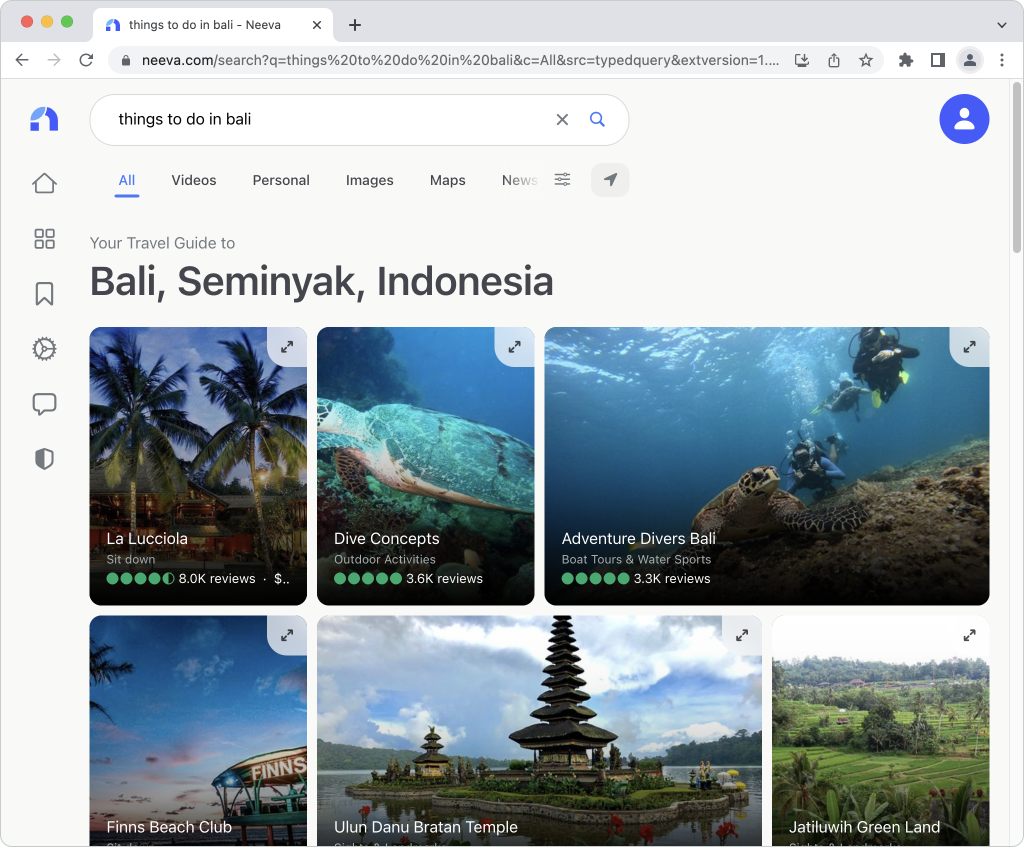
”I think the path for us is quite clear,” he says. “Don’t get me wrong, it is sort of scary being in the path of an 18-wheeler, but that’s what I signed up to do when I started Neeva and we are confident in our ability to innovate and create a product that users will love.”
And Ramaswamy makes another point: “The billion dollars of revenue that Google is making [from ad providers] serves as an obstacle to them creating user-first experiences.”
But not providing ads is also an obstacle to Neeva generating revenue. It needs to rely on users actually switching search engine providers, something Ramaswamy himself says has been difficult despite the pull of no ads. “Our focus on privacy has resonated with some people but not in a mass-market kind of way,” he says.
It’s a freemium model with a basic service as well as a premium subscription that includes other features too, like a VPN and password manager. In Australia, that premium subscription costs $7.99 per month of $69.99 per year. Ramaswamy says it convers 2-3% of people that try Neeva’s free version, and it’s also looking at licensing its technology for use by other sites.
Since officially launching in the US in 2021, Neeva has gained more than 2 million users, and has raised over US$80 million from investors, including Sequoia Capital, Greylock Ventures and Inovia Capital.
Look back on the week that was with hand-picked articles from Australia and around the world. Sign up to the Forbes Australia newsletter here.
